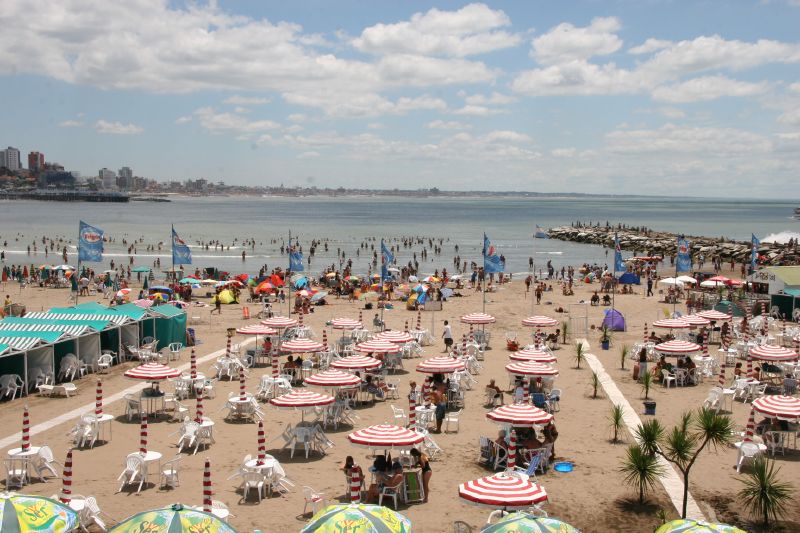Vacation as a Public Health Intervention
Posted on
August 22, 2018
 Photo credit: Pablo D. Flores
Photo credit: Pablo D. Flores
One of the earliest memories I have is of vacation. I am on the beach in Mar del Plata, Argentina, holding my older cousin’s hand while my mother takes a photo of us standing by a big white lifesaver. I am wearing a pink frilly cap. My cousin didn't quite know how to hold my hand and he twisted it back just slightly as he held it. If you look carefully you can see this in the photo. He must have been around 8 or 9 and I was probably 3 or 4. Or maybe I don't really remember this at all, I just think I do because I have seen the photo so many times. I have read somewhere that memory can do that.
When I was growing up in Argentina, my whole family took long summer vacations. We weren’t especially wealthy, but like many other Argentines, this is what we did. It was either January or February (this is summer in the southern hemisphere). For a whole glorious month we did nothing but get up every morning, pack sandwiches, spend the entire day at the beach, return home sandy and tired to shower and change, and then walk into town to play pinball machines and table soccer. In between there was a lot of chatting about life, about family, and about current events. And also, lots of just laying around under an umbrella or just in the sun, letting your mind wander and reading, lots of reading: One Hundred Years of Solitude, The Brothers Karamazov, stories of Julio Cortazar, all these and more I read lying on the beach wearing a large-brimmed hat.
I don't think vacations are quite like that anymore for most people, even in Argentina. For many, they never have been like this at all. The United States is an especially stark example: unlike every other developed nation, the US has no mandated number of days off for employees. In contrast most western European countries have 25 days or more. Although the average number of vacation days used by US workers has increased slightly over the past three years (from 16 days in 2014 to 16.8 days in 2016 according to a recent survey), in 2016 54 percent of US employees left vacation time on the table, and overall US workers take a lot less vacation time than European workers. The average American, for example, works 46.2 weeks per year, while the French average 40 weeks per year. Other surveys suggest that an alarmingly high proportion of Americans (as many as 42 percent) do not take any vacation at all.
It will come as no surprise that taking vacations has been linked to better health in many studies. Large cohort studies, including the Framingham Heart Study and the MrFit Study, have found that taking vacation is associated with lower risk for cardiovascular disease, even after adjusting for prior health and socioeconomic characteristics. Other studies have shown that even short vacations can have measurable effects on stress and well-being. However, the extent to which the health benefits of vacations are sustained over time may depend on other factors such as the type of job one returns to or other social or economic factors.
Vacation time, and the formal and informal rules around it, including not only legislation about vacation time but also cultural norms and expectations (including whether one is expected to take vacations or check in during vacations), is clearly relevant for population health. It is one of many examples of how social policy and social norms can affect our health. And yet for a multiplicity of reasons, including policies and our perceptions of what is needed or right (shaped in turn by history and social context), it is often hard to go against the grain and change our attitudes or behavior.
My memories of vacations in childhood are necessarily colored by nostalgia and by the carefree sense and optimism of childhood that we all know is irrecoverable. But the feeling I got from my childhood vacations is still strong in me. Today, when I walk along the Jersey shore, I am flooded by memories of Mar del Plata so many years ago. I feel a new energy and vision and meaning. It is significant that memories of vacation are among the most poignant that many of us have. This must be a sign that they are meaningful to our lives in ways that are hard to capture in any health study. So now, I will do my best to practice what I preach, sign off (as much as I can!) and enjoy my vacation…I hope you do too!
Ana V. Diez Roux, MD, PhD, MPH
Dean and Distinguished Professor, Epidemiology, Dornsife School of Public Health